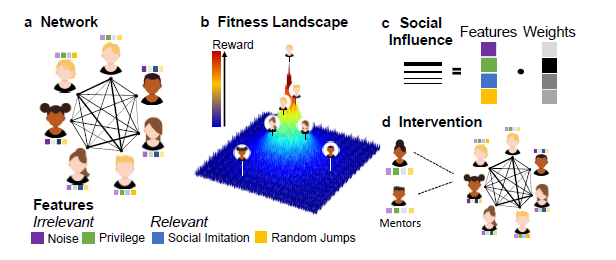Simulating Leadership Emergence

Bias exists in how we pick leaders, who we perceive as being influential, and who we interact with, not only in society,
but in organizational contexts. Drawing from leadership emergence and social influence theories, we investigate potential
interventions that support diverse leaders. Using agent-based
simulations, we model a collective search process on a fitness landscape. Agents combine individual and social learning, and are represented as a feature vector blending relevant (e.g., individual learning characteristics) and irrelevant
(e.g., race or gender) features. Agents use rational principles of learning to estimate feature weights on the basis of
performance predictions, which are used to dynamically define social influence in their network. We show how biases
arise based on historic privilege, but can be drastically reduced through the use of an intervention (e.g. mentorship).
This work provides important insights into the cognitive mechanisms underlying bias construction and deconstruction, while
pointing towards real-world interventions to be tested in future
empirical work.
Members
Publications

